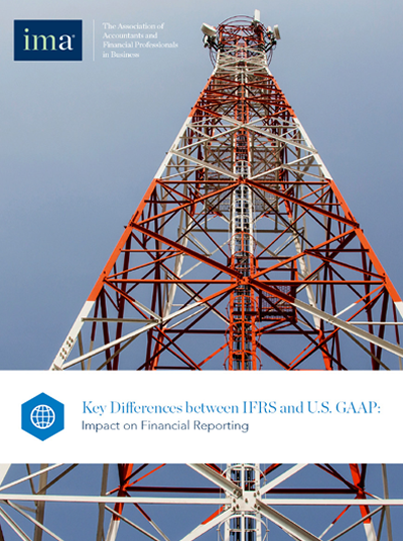
The global movement to adopt InternationalFinancial Reporting Standards (IFRS) is the para-mount financial reporting issue of the 21st century.Over 100 countries now require IFRS as the basis offinancial reporting by their publicly-traded compa-nies. In the U.S., convergence of U.S. GAAP to IFRShas been ongoing for many years, formally since theNorwalk Agreement of 2002. Based on a proposedtimetable developed by the U.S. Securities andExchange Commission, acceptance of IFRS in theU.S. could be as early as 2015. Understanding IFRSis critically important to management accountants,auditors, financial analysts, corporate executives,and others involved with financial reporting. This paper has two objectives. The first is todescribe some of the key differences between U.S.GAAP and IFRS. The second is to compare actualfinancial statements in which results were reportedunder both IFRS and U.S. GAAP. Findings indicatethat while there are some notable differencesbetween IFRS and U.S. GAAP, differences betweenthe two sets of accounting standards do not lead tosignificant overall differences.